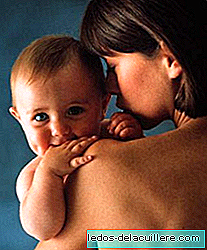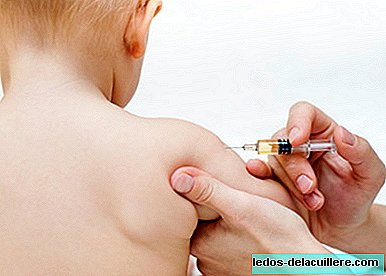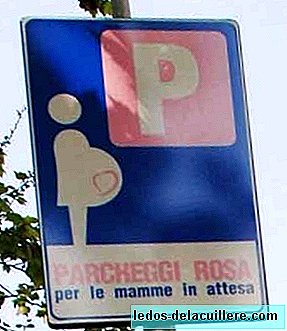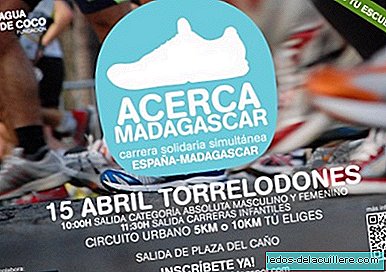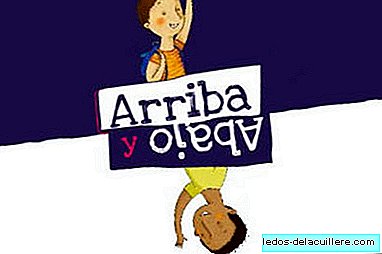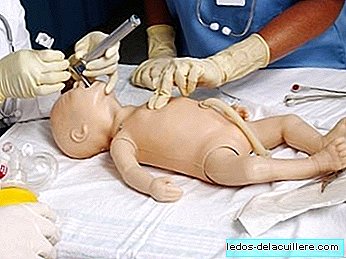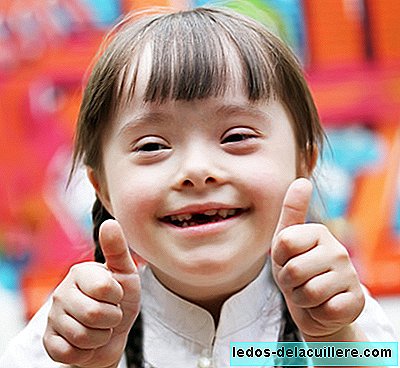
With a population of 330,000 people, in Iceland only two children are born on average every year with Down syndrome, according to data published in CBS News. Neonatal tests, with 85% accuracy and a pregnancy termination law that allows abortion beyond 16 weeks, are preventing babies from being born with this chromosomal abnormality.
In 2009, Augusta was born, a girl who came to the world with Down Syndrome, altering birth crises in Iceland with this genetic anomaly. His mother then became a human rights activist of people with Down syndrome on the island.
100% of detected cases are interrupted
Down syndrome screening tests were introduced in Iceland in 2000 and since then, andThe number of births with this chromosomal alteration has decreased until almost disappear.
Although the combined screening test or triple prenatal screening is optional, around 85% of pregnant women in Iceland (90% if we talk about the capital) they decide to do it to detect if their child comes with any chromosomal abnormality.
The screening test, with a reliability of 85%, combines an ultrasound examination with a blood test and the mother's age, and all this will determine the chances that the fetus has to come with some chromosomal alteration"Nobody pressured me to perform the screening test - states the pregnant Bergthori Einarsdottie to the CBS News newspaper - but to know that 4 out of 5 women do it, helped me make the decision and I also decided to make it "
If the test is positive, almost all Icelandic women decide interrupt your pregnancy, covered by a Law that allows them to do so in these cases beyond 16 weeks of gestation. Therefore, and according to the article published by CBS NEws, babies with Down syndrome who are still born on the island are due to a screening failure in the test:
"Babies with this disorder born in Iceland were low risk in our screening test, so we could not detect it in the screening test "- says Hulda Hjartardottir, head of the Prenatal Diagnostic Unit at Landspitali University Hospital, where around 70% of Icelandic children are born.

According to data from the Icelandic Ministry of Health that El País published in this article, between 2007 and 2012, the 38 women who were diagnosed that their child would be born with Down Syndrome they decided to interrupt their pregnancy. The same happened with the 15 cases detected in 2013 and the 11 of 2014.
However, during the same period of time (2007-2014), 22 children were born in Iceland with Down syndrome and although there are no data on abortions performed during 2016, it is known that six babies were born with this chromosomal alteration, according to information from the Down Syndrome Association of the country.
Augusta, the little girl who broke the statistics
In 2009, Thordis Ingadottir, 40 and pregnant with her third child, underwent the prenatal screening test and the results indicated that her chances of having a child with Down Syndrome were 1 in 1,600, a risk considered low.
But the test had failed and her little Augusta, who is now seven years old, was born with Down Syndrome being, according to CBS NEws, the third baby on the island that was born that year with this disability.
Since then, Thordis has become an activist for the rights of people with this genetic alteration, and today is the President of the Down Syndrome Association in Iceland.
"To the extent that Icelandic women have children at an increasingly high age, the number of children with Down syndrome should have increased, but this is not the case due to early detection during pregnancy" - explains Thordis in El País.

Icelandic geneticist Kari Stefansson, founder of Decode Genetics, has studied almost all of the genomes of Iceland's population, and states that the island is one of the few countries that has eradicated, almost completely, Down syndrome.
"I do not think there is anything wrong with aspiring to have healthy children, but it is difficult to determine how far we can go to achieve this goal" - reflects this expert in genetics.However, the Down Syndrome Association in Iceland accounted for a total of six babies born with this chromosomal alteration during the past year, and Ingadottir, its President, comments hopefully:
"I still do not know what has been the reason for the change, but I hope it is the result of our defense for the rights of this group"
And, although it seems that the life of some parents who have just been diagnosed that their baby was born with Down Syndrome falls apart, the families that decide give that son a chance They agree that it is the best they could do.
There is no doubt that the option of continuing or not with pregnancy when there is a chromosomal alteration is a personal and respectable decision, but Ingadottir from Iceland -or any other father in the same circumstances- struggle to normalize the lives of children with Down syndrome; a life that can be exciting, free and full of challenges to overcome.
Via CBS News, El País
In Babies and More Triple screening: how to interpret the values, Triple Screening in the first trimester of pregnancy: what it is and when it is performed, could the blood test to detect Down Syndrome in pregnancy end it? Why Down syndrome is not a disease, The story of a couple who about to abort their baby with Down syndrome repented, A father says that his son's Down Syndrome is the best thing that happened to him in life, 'The story of Jan', an emotional documentary that shows the daily life of a child with Down syndrome




